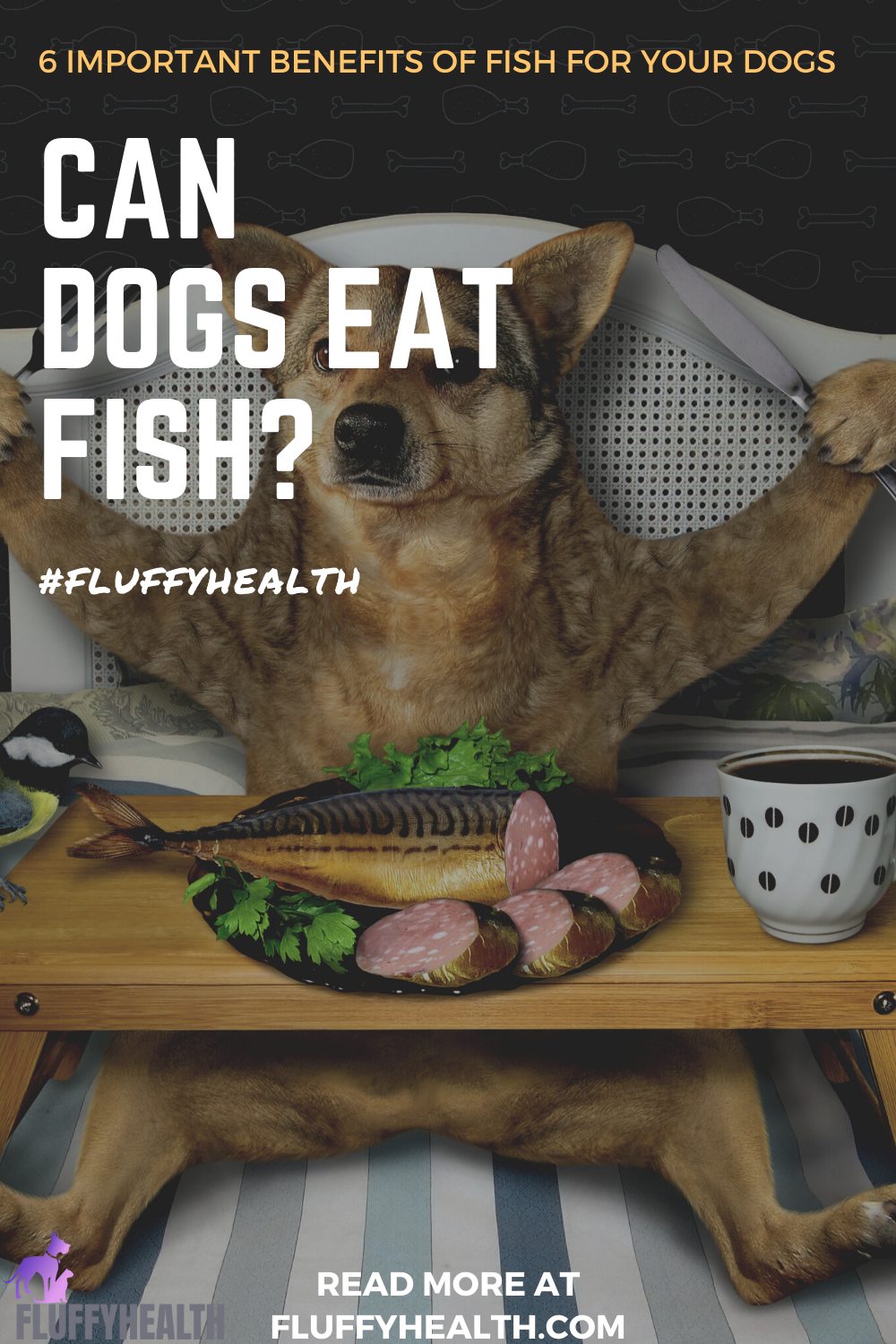Can dogs eat fish? We got this question countless times from our followers. Therefore, we will answer it in today’s question. Fish is an excellent source of essential vitamins and minerals that the human body needs. But what about dogs? Can dogs eat fish? The answer is positively affirmative, as oily fish species are indeed rich in fatty acids and essential nutrients, including Omega 3, ideally good for your dog’s health.
However, many followers constantly ask us, “is it recommended to offer fish as a daily diet? Is raw fish good for dogs?” Without any further delay, let’s start by discussing the benefits of fish for your dog.
What Are The Benefits Of Fish For Your Dogs?
As for human beings, fish is full of health benefits for dogs. A dog fed a regular and controlled intake of oily fish will have a more excellent coat and less inflammation as well.
In terms of the physical benefits of fish, only oily fatty fish should be taken into account. The other fish species are not of major interest. Such oily fatty fish include salmon, herring, sardines, and even mackerel. Here are the main benefits of fish for your dogs:
- Oily fish are a vital source of animal protein.
- Oily fish are easier to digest than meat.
- They have anti-inflammatory properties.
- Omega 3 and other fatty acids help maintain healthy dog skin.
- Meat is sometimes causing allergic problems, and fatty fish can perfectly replace it.
- As they have high protein content, oily fish species contribute to the physical growth process.

Some Risks You Should Be Aware Of
Can dogs eat fish? Yes, Dogs can, as mentioned before. However, it would be best if you were vigilant. Although oily fish is excellent for your dog’s overall health, it can also carry possible risks, which may threaten your dog’s life.
To avoid any risk surrounding your dog’s safety, always remember to remove all bones before serving the fish because your dog cannot do so. Therefore, it could injure itself. Do not neglect bones – one bone can block the esophagus or perforate an active organ.
As we previously indicated, oily fish are beneficial, but be careful, as you should feed your dog reasonable amounts in a balanced, varied, and healthy diet. Fish should not be offered as an overdose or as a sole food.
Can Dogs Eat Fish?
We have realized that dogs can eat fish in moderate intakes, but how can we serve that healthy food so that dogs use its several nutritional benefits? In fact, there are many ways to feed your dogfish. For example, there is a fish-based kibble way and fish in its natural form way.
Fish-Based Kibble
Fish-based kibble is very suitable for your dog’s diet, as it is recommended to feed dogs such food when they find difficulty digesting heavy meat.
Veterinary physicians also confirm that kibbles are good alternatives, as they have equivalent nutrients that dogs can easily ingest without any problem.
Note that it is quite possible to mix meat and fish kibbles. Your dog will find that mixture very tasty and nourishing.
Fish In Its Natural Form
Raw fish is also preferable. However, it would be best to cook it first to eliminate a large number of bacteria, which can develop and multiply later in the digestive system. Some are toxic, and some are fatal. To further reduce the risk of parasite infections, freeze the raw fish you have already bought for approximately ten days and cook it for your dog.
If you want to feed your dog raw fish, cook it until reaching the boiling point, without salt or other additional substances. Some experts stated that prolonged freezing at a maximum of -20 °C would kill enough bacteria. Nutritionists do not all agree on this issue. They consistently advise dogs owners to make the fish intake relatively little in order to maintain safety.
Fish To Completely Avoid
We hope that you have recognized the fish importance as a delicious and healthy meal. For example, oily fish such as sardines, mackerel, and unsalted salmon are favored for their essential nutrient intake. You can also feed your dog other species.
On the other hand, it is advisable to avoid all carnivorous fish and bighead carp because they contain heavy metals, which are pretty unhealthy. It is also suggested that you avoid monkfish, tuna, shark, and swordfish. They present a greater risk to your dog’s stomach.

Fish Is An Ideal Meal When You Follow These Instructions
As a general rule, dogs love to eat fish. It is a fact that meat accounts for about 90% of the dog full menu; in the remaining 10%, everything else, including fish, can find a space.
In the best diet for dogs, meat should be 50% of the full menu. Food products of non-animal origin, such as cereals, fruits, and vegetables, can represent 25% of the total percentage, while the remaining 25% can be from different types of fish.
So back to the original question, can dogs eat fish? The answer is, as previously mentioned, “yes.” It is not a toxic food for your dog, which will eat that food with peace of mind. Despite that, dogs cannot eat fish as we do. It is essential to consider some points that should seize our attention.
At first, you should know that Omega 3 and all fatty acids should be taken under the supervision of a veterinarian, who can determine the most effective intake that helps enrich your dog food system. Any increase in rates of acids inside your dog’s body may cause severe pains and major problems you do not need right now.
Visiting the veterinary clinic will be of significant benefit, as you will know the risks that may you’re your do and damage its vital organs. Second, try to offer your dog unsalted fish. It is also recommended to serve fish without preservatives and artificial flavors. Flavor enhancers are also entirely rejected because they include cancerous substances and chemical elements, which denature the body cells and badly affect neurons.
The Conclusion
Finally, after we answered the question, “can dogs eat fish?” And explained why; you know how important fish can be for both humans and pets. We also encourage you to add fish to snacks that your dog prefers to have at lunch. Snacks are delicious and can be served at any time. It is considered soft, bland food that your dog will truly enjoy, no matter how old it is.
Note that fish cannot be offered as a complete meal; as a result, it is adequate to give your dog a small snack in order to assuage hunger before getting the primary nourishment.

